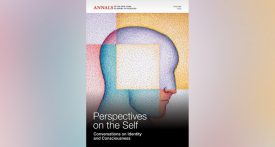Search results for tag "Self-knowledge" - 10 answer(s)
311
Vote
If someone was to ask us: “are you ever negligent?”, we would probably be tempted to nod in agreement, if only to make sure we do not come out as smug. But things would get much more complicated if we were asked to answer the follow-up question: “but in which areas and in what ways are you negligent?”. Because how are we supposed to identify in which situations we tend to be negligent and to what degree (occasionally/systematically, minor/serious), when by definition, negligence results from a lack of attention and thus cannot be clearly and directly perceived? Or since, in other words, we do not attach any importance to it.
Of course, there are times where the thin voice of our moral conscience will make itself heard in the back of our mind, right when we are about to do something negligent. But it will likely instantaneously drown in the nonstop muddy flow of our quasi-automatic thoughts, and lack the energy to push us to exercise our willpower to thwart that negligence.
Read more
289
Vote
If you are like me, there are certain people whose company you seek and enjoy, and then there are all those whose company is a burden and awakens negative feelings within you. But what causes such feelings? And what is the best way to deal with them? Here is the result of my personal introspective analysis.
A closer look at these negative feelings quickly led me to the conclusion that they were morally “suspicious”. To put it simply, I observed that they were often—if not always—the consequence of my own moral failings. There is no doubt, for example, that my strongest aversions are caused by feelings of rivalry or injured self-esteem. All it takes for me to want to punch a person in the face, is a smile or a comment I interpret as condescending!
Read more
381
Vote
“The cause of everything that happens to you is in you; you should therefore look within yourself to find the cause.”
My reading of this maxim by Ostad Elahi triggered a number of thoughts that I would like to share by way of this article. A hearty thanks to e-ostadelahi.com for the opportunity to share with their readers.
We tend to spend a lot of time blaming “the world” for our misfortunes. On the other hand, we consider anything good to be the fruit of our own doing. But as always, giving it a little thought can make us realise that reality is a lot more complex.
Read more
364
Vote
Why be humble?
If humility consists in resisting the pressure of pride—whose power we can sense—it most certainly requires an effort. As all efforts, it needs to be justified, for after all, if the illusions of an oversized ego are part of my fundamental nature, and as long as they remain within the limits of reason, why try and rid myself of them—assuming this is even possible?
There are at least two reasons that would provide motivation for such an effort:
The first reason is ethical and refers to what has been called “love of truth”. While it is in my nature to be blind to the true place I hold in the world, it is also in my nature, once I have become conscious of an illusion, to try and free myself from it. No one can content themselves—unless they are spiritually dead—with living knowingly in error without trying to come clear. We are naturally inclined to seek truth, whatever it may be, even if it is unpleasant for our ego. Given that pride is founded on lies and illusions, it is our ethical duty to strive to become more humble so as to free ourselves from these lies and to come closer to the truth of what we really are.
Read more
306
Vote
 Keeping a logbook can prove useful in many ways for the practice of ethics. It provides precious help in the process of self-knowledge.
The first reason why putting down experiences is useful is obvious: in addition to helping us fight against forgetfulness, it helps us focus on our daily experiences, encouraging us to analyse them and to set up plans of action for the next day, so that we may correct our mistakes.
Example: I am playing with my 5-year-old daughter and my 8-year-old son. We split into teams, my son on one side, my daughter and I on the other. Slowly but surely I get carried away and I forget that my opponent is an 8-year-old child. I win hands down, as my daughter watches with admiration, and I don’t even give my son the chance to score the couple of points that would have allowed him to save face. Only at the end of the game do I suddenly realise the negative emotion that has invaded me—it looks a lot like pride. Too late. My son is humiliated, he doesn’t feel like playing anymore and will refuse to play this game from now on.
Read more
398
Vote
As with all omnipresent and invasive character traits, consubstantial pride is difficult to localise. But a number of characteristics make it possible to pinpoint it. These characteristics are more or less obvious depending on the individual, but no one is entirely devoid of them. Delving within is all it takes to uncover strong tendencies that express themselves more or less openly depending on the situations, and take different forms, at times obscure, at times subtle or twisted.
Read more
844
Vote
Why does self-knowledge matter? How and why is it connected to the practice of ethics? Elie During, Associate Professor in the Philosophy Department of the University of Paris – Ouest Nanterre, addresses these questions in an article published in a special issue of the Annals of the New York Academy of Sciences entitled “Perspectives on the Self”.
In the following excerpt, the author examines Ostad Elahi’s concept of the “imperious self”, emphasizing the importance of self-modeling in the process of self-transformation.
Read more
711
Vote
Humility is the most accomplished form of self-knowledge. It presupposes that you have a clear and lucid perception of what you really are and of the place you hold in the world. It presupposes also that you look at yourself with neutrality and even distance: humility also means being able to look at yourself with humour.
As explained in my previous post, humility can be defined as the articulation point between two modes of the self (psychological and metaphysical): it means acknowledging my metaphysical condition (the “I am nothing”) even when I am in the midst of social interactions, surrounded by others, just like others. It means being aware of my insignificance even when I go about my business, defending my rights and making sure I command respect if necessary, while constantly carrying within me that “double thought” Pascal alludes to.
Read more
1084
Vote
We live in our ego… well, I don’t know about you, but that is certainly true for myself. This became clear to me after I listened to—and reflected on—the distinction between surface conscious self and deep conscious self as it is presented here. The surface conscious self is my ego, my demanding self, this self that wants to be recognised by others, that wants others to love me, admire me, that wants everything to be for me and only for me, that takes every opportunity to get offended, that gets on its high horse over the tiniest criticism, that sees itself at the centre of the world with everybody else on the outskirts, that thinks I know better, that dreads getting relegated to second place and doesn’t like its rivals to succeed at anything, that revels in compliments and remembers them with delight, that believed others owe me attention, consideration, that they should listen to me…
Read more
566
Vote
If ethics is about principles, practicing ethics is about method. In this field, we can assume that not just any method will do. So we have to figure out which method will be the most efficient to get us closer to our goal of progressing towards spiritual perfection.
For the purposes of this post, I will assume that the reader is familiar with the various psychological forces at play in the paradigm of the process of perfection, and in particular with the concept of imperious self (IS), which may be defined as an impulsive force systematically opposed to spiritual progress. The IS is protean—it creeps in through the cracks created by our moral faults or lack of attention. It takes on different looks depending on the person and the circumstances. One day it will oppose itself to your spiritual work head-on, and the next, like a chameleon, it will pass itself as a spiritual thought and deceive your reason.
Read more
« Prev - Next »
|

 News
News Podcast
Podcast













Recent Comments